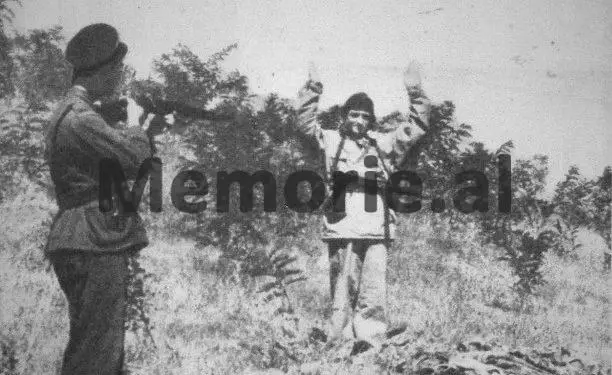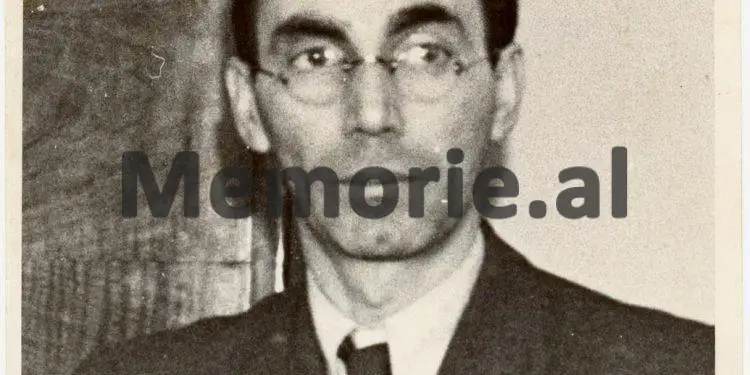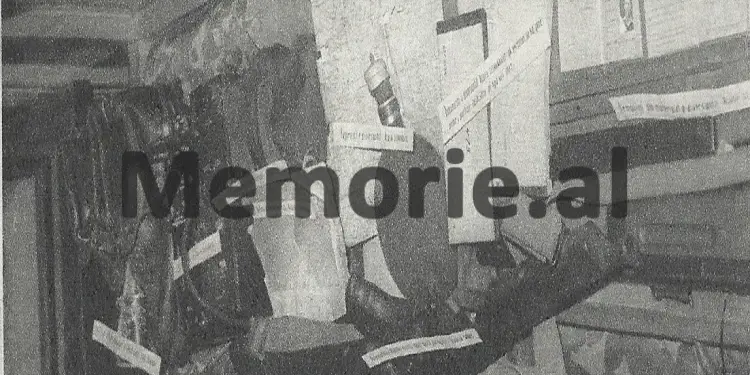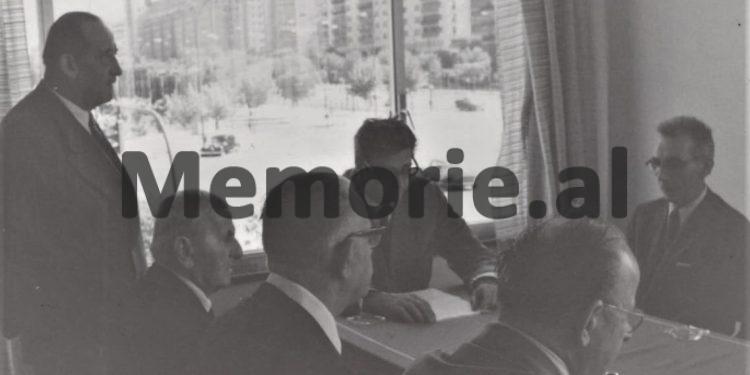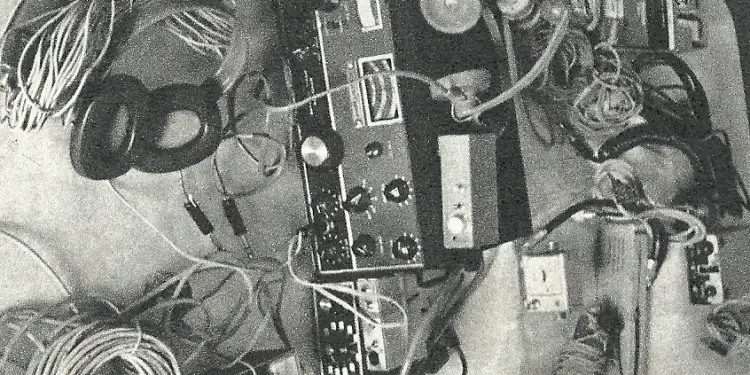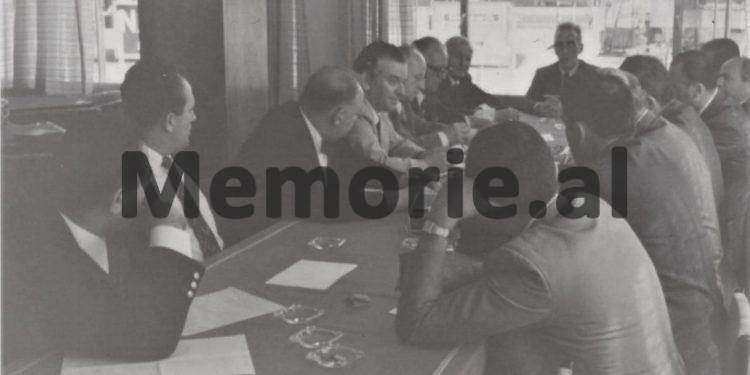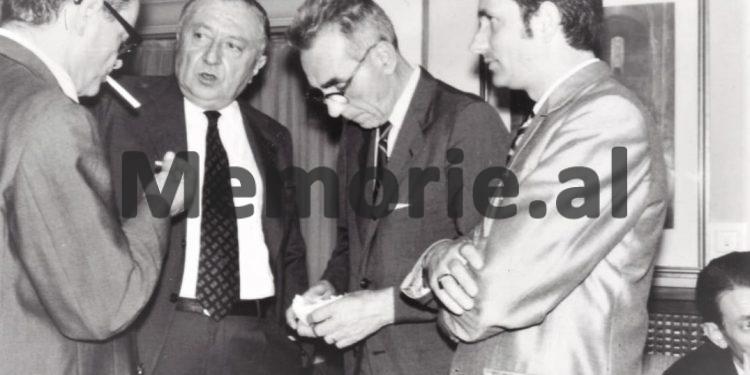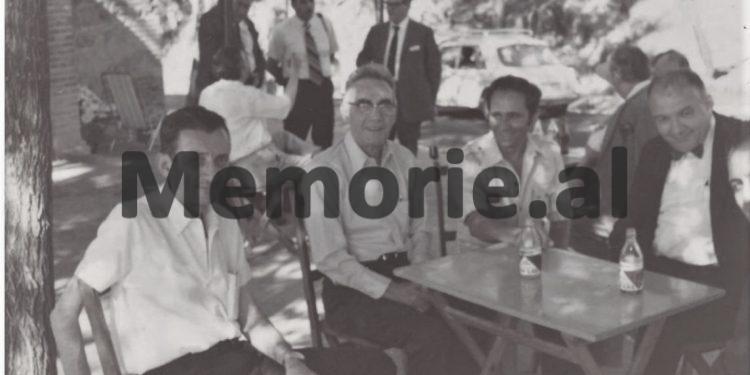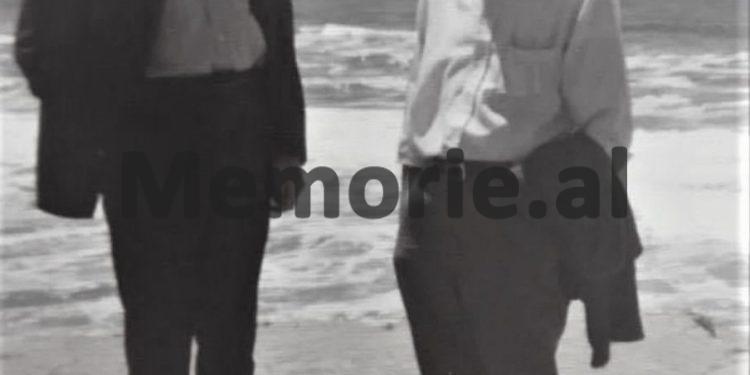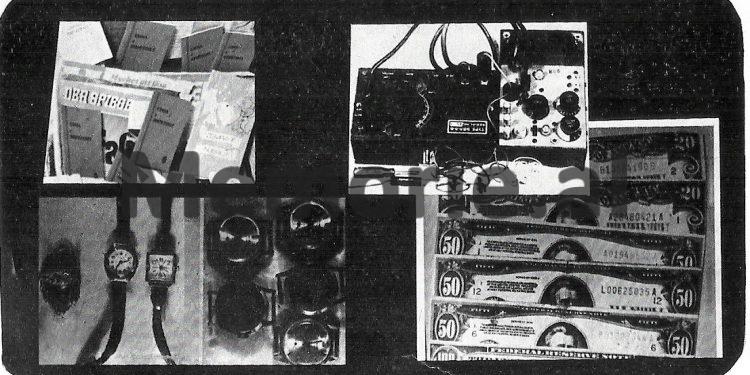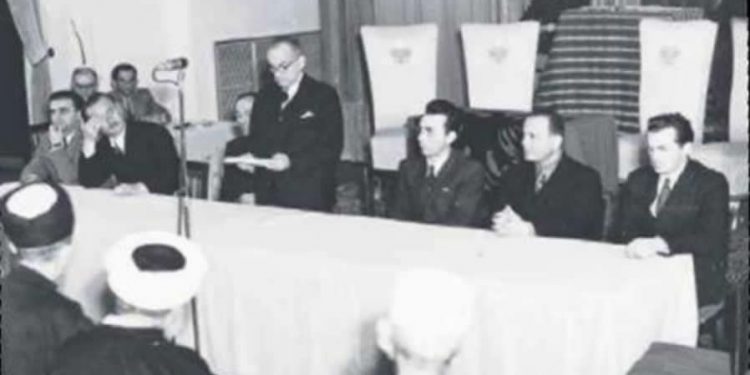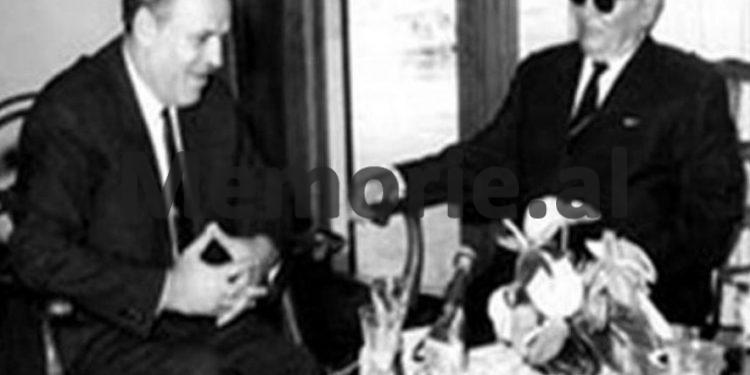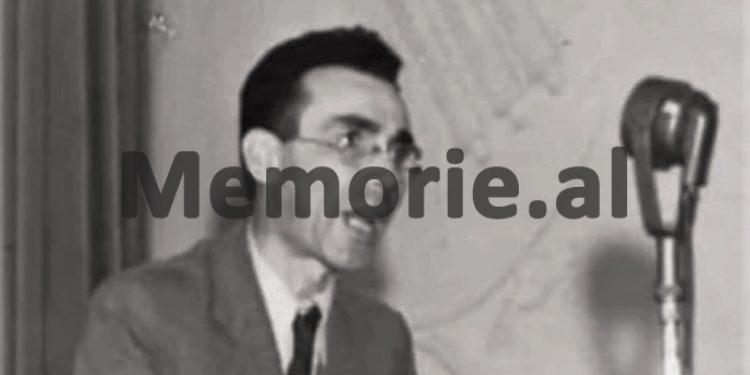By Idriz Lamaj
Part fourteen
From the works of the apostles of ethnic Albania
Xhafer Deva
In light of his own letters and other diaspora revelations
Preface
Memorie.al/ Probably like many others, I often browse letters with my friends and associates, who are no longer in this life. Browsing through them, for a moment unfolds memories that it seems to me that some of them can serve our history. Then, I return to the awareness of the current difficult situation in the ethnic homeland, caused by the quadruple of Albanian politics, I say to myself: “What can my memories of others or the letters of the people of dead?”
Without being the ominous instigator of pessimism, thinking as always of a better future, I return to my obligations to my friends, and as an icy observer of time, without any claim of historical service, when I am given the opportunity of publication, write what I have in mind, always based on their writings and letters. This principle is also followed in this book about Xhafer Deva. I knew Xhafer Deva in person; we exchanged visits and had a strong correspondence.
I spent days off at his house and inherited all of Xhafer Deva’s correspondence with Rexhep Krasniqi, his closest friend, for more than 40 years. After many years, I talked on the phone with Mrs. Deva’s daughter and son-in-law. In the conversation going on, taking advantage of the old friendship, I asked about his letters and they informed me that it was all Qefali Hamdia, a friend of their family.
In June of last year (2001) I went to Kenosha, Wisconsin, a guest of Qefali Hamdia, to look at Xhafer Deva’s correspondence, which Mrs. Deva sent her years ago, when she, due to her advanced age, was closed his house to go to the house of his 5th daughter and son-in-law, Mrs. Burgl Dagmar and Rev. Dennis Logie.
After reading the bulk of the letters, in the languages I knew, I took with me more than a thousand pages of his correspondence, covering a period of over 30 years, 1945 – 1978. Xhafer Deva spoke and wrote seven – eight languages. His correspondence is: Albanian, English, German, Italian, French, Turkish and Serbian. Xhafer Deva’s letters and writings, with the exception of those in Old Turkish and Serbian in Cyrillic, are mostly typewritten, well-kept, and alphabetically arranged, with the persons he dealt with.
That includes his family letters. He carefully kept a copy of every letter he sent and every letter he received. Mrs. Oswalda Deva, daughter Burgl, son-in-law Dennis Logie and Mr. Qefali Hamdia with family, expressed his heartfelt thanks for the trust they gave me. With special gratitude I recall here the help given to me by my brothers – Captain Nue Gjomarkaj and Nikoll Gjomarkaj, in the preparation of one of the most important chapters of this book.
Kapidan Nou, in addition to making available the subject on Xhafer Deva’s relations with the ‘Independent National Bloc’ and sending paratroopers to Albania and Kosovo, reviewed with me each document of that period, and we formulated the text in the form of a conversation; while Nicholas, deciphered the letters, transcribed and translated from Italian, the unpublished materials to date, which were published in this chapter.
Continues from the last number
Xhafer Deva’s life and activity in exile
– Kosovo in the time of Ethnic Albania –
Xhafer Deva in the light of his own letters
Xhafer Deva’s relations with the ‘Independent National Bloc’ and their parachute missions in Albania and Kosovo
After exchanging views on the situation in Albania and the activity of various missions within Albania, I left. As we had agreed, I went to meet General Nikolopoulos, after two days, and in fact the officer with whom I was to meet, announced in the presence of the general that one of the men had been killed, while another was missing. As for me, based on the information I had, I could only partially confirm this announcement and exactly that one was killed. Despite the clear and accurate information of the officer in charge of this work, regarding the killed and missing, General Nikolopoulos said that he had agreed with the American gentlemen to meet with me the next day, starting from the fact that he, General Nikolopoulos, regarded the whole affair as a problem of the Americans.
The next day, January 31, I was introduced to an American gentleman, Mr. Williams, (actually an Albanian-American and Mr. Jakova’s successor), with whom I had to talk. Our conversation was very short, due to the position of this gentleman. At the beginning of the conversation, he told me that the people, with the exception of one (Beqir Bajgora), who was missing, were all safe and sound in Athens. From the investigations, he added, it emerged that there was no certainty whether the person in question was dead or alive, or that they might have caught him. Mr. Williams went on to tell me that he had heard from the general that I wanted to meet people, a fact which I confirmed. He then asked me what I was going to talk to them about, since I should limit the conversation with them, about their state of health, but no more than that. Aware of this limit, I responded immediately, because of the restrictions he mentioned, I gave up and did not want to meet people.
Mr. Williams continued to react to my stance, saying that force had never been used to charge these people with missions, that they had done very well. When he said these words to me, I replied that I did not mean anything like that, such as the use of force, etc., but that it was my duty to point out that I should not be considered an agent and so on. a bit like an American service provider with agent, adding that at least I, felt responsible for the people recruited by me. In fact these people were charged with a mission in Albania, as a result of a close cooperation with the gentlemen in Italy and it is for this reason that I have nothing more to discuss with him, since, as far as I am concerned, the whole matter remains to be settled with the gentlemen in Italy.
Noting to Mr. Williams that I would take advantage of his stay, I walked out of the office thanking the general for the help I know kindly. As you can see, dear Roger, the people who, more than a year ago, had been taken by the gentlemen in Greece, who were fully aware of their previous mission in Albania, had been sent twice with similar missions to Albania, despite assurances given by Mr. Jakova that they would be treated well, pending the resolution of the whole matter in Rome. It is worth mentioning here, that Mr. Hart had given the same assurances in Rome, claiming that a solution would be found sooner or later. Leaving aside the mournful fact that a year ago I myself had to find out the arrival of those people in Greece, while Mr. Hart, was fully aware of their arrival in this country, I am very sorry to continue by the most shameful means to follow the activity of these people and learn from third persons, that one or more of them, have died or are lost.
Aware of the heavy responsibility I have to justify myself in the future to the parents or relatives of these people described above, I ask myself how long this condition will last. As you know, my desire is to resolve this whole issue so as not to take on any responsibility. I could easily have met those people in Athens, but I did not do so, to be correct to the end. Speaking on behalf of his superiors in Athens, Mr. Williams told me that they had never used force. It is true that they do not use force where they should use it, but only where they should not. They live with the thought that no one but them knows that these young men, taking heart from the fact that they are carrying out their duty to the homeland with American help, parachute into enemy territory, in a way that they remain where they were released, with broken legs, at the mercy of enemy bullets.
As you can see, dear Mr. Roger, I have amassed a lot of data and facts that sufficiently prove a kind of background activity that their superiors should be aware of, if not for something else, for the sake of of the excellent reputation of the United States. It would be very good if I could discuss this whole issue with you, as soon as possible, in the hope that you would kindly help me to find a fair solution to this issue.
With my best respects to Mrs. Roger, I remain sincerely yours.
Xhafer Deva
Along with the letter sent by Mr. Roger, Deva forwarded to him another ten pages of information which he had begun to receive through diplomatic mail, from a friend of his known as Kenan. This person, who was a friend and schoolmate of Deva since Robert Koleg, worked for the Turkish consulate in Skopje. Destan Berisha (Deva parachutist) from the village of Bilusht in Prizren had also sent some information to Kenan. Deva had secretly entrusted this name to Destan and had advised him to supply her with the information ordered above. Due to good relations between Yugoslavia and Turkey, Deva believed that the post office with the Turkish embassy and consulate in Belgrade and Skopje was not controlled by the UDB. Kenan has been providing Deva with information on internal developments in Yugoslavia and in particular in Kosovo for more than three years. Kenan sent the information by diplomatic mail to Mr. Many, who does not know who he is. The information came to Deva from Istanbul to Bari and Rome, through the Turkish embassy in the Italian capital.
Xhafer Deva’s efforts to establish secret information center in Kosovo, in the service of the Americans.
After the closure of the parachute missions, Xhafer Deva sees that everything was changing in international politics, especially in the political attitude of the United States towards the Balkans. Now he too is changing tactics against Yugoslavia, making plans to establish a secret information center in Kosovo. Initially his goal was in Skopje, but later, after a visit to Istanbul, he decided to have the center there. From Istanbul Deva sends some intelligence reports to the US Service Office in Rome. The reports are written in German. Roger was fluent in German, Italian and French. Here is one of them:
Subject: Report on the implementation of the task in Istanbul Regarding: The installation of the informant in the area of Kosovo and, for this, the plans submitted on 14 August 1953. In accordance with the task to Istanbul, from 20 August to 11 September 1953, was implemented as follows:
Part I – Collection of information in the areas of Kosovo and Macedonia.
There met “tourist groups” on 15, 20 and 25 August 1953, respectively three groups in a row, a total of 144 people. Each group was under the direction of a guide and his assistant, actually UDB agents. Most of the travelers came from the area of Macedonia! Surprisingly, among the travelers this time were Serbs and Montenegrins, who have no connection in Turkey. According to some Albanians, their task was to act as spies. It was generally claimed that all tourists traveling to Turkey were instructed in political conferences, prior to their departure, on how to behave in Turkey. At the end of each conference, it was made clear to them that they should not meet with the “enemies of the people” who had found asylum in Turkey, and especially, in particular, it was emphasized that they should not meet with XH .D. (Xhafer Deven – I.L.).
- Among tourists it was only a fitting element to entrust the task of installing the newsletter. However, he could only be given the task of transmitting the instructions for installing the informant to a trusted person in time in Kosovo. Among the tourists, there was no suitable person to be entrusted with the task of regularly sending to Istanbul current information of a political, economic and military nature. Even in terms of installing the newsletter, meeting the objectives stand out as unattainable.
Part II – Installation of an informant in the Kosovo area.
- As mentioned above, among the tourists was a trusted, confident man, who arrived in Istanbul on August 25 and it became possible to trust the instructions transmitted as per our interest. Through this opportunistic chance it became possible to avoid sending a trusted man from Istanbul. The man in question, who did not possess the knowledge and was not skilled enough to beg for an informant, was instructed with the task of transmitting the instructions to the designated informant. As taking documents and monetary values with him posed a great risk, given the very strong controls, as well as the body controls in the Yugoslav area, the instructions in some negotiations became clear to him and he voluntarily took it upon himself to do so. to transmit orally to a trusted person operating in Mitrovica, Kosovo. It was also agreed that the mediator (informant) would be supplied with written instructions and cash at the train station in Belgrade by a Turkish citizen traveling in transit from Belgrade to Germany.
All the details related to this operation were carefully arranged in such a way that the mediator (informant) would receive the Turkish citizen on September 17, at 23:30, at the train station in Belgrade and take delivery everything. The instructions, as well as the surveys prepared in Rome, were translated and handed over to the Turkish citizen. In addition to the 127 documents, he was given $ 200 with him. In this way, the first part of the operation is completed successfully. It was made clear to the informant in the instructions given to him that $ 200 had been set aside to start and cover travel expenses as well as other small expenses, with the task of sending to Istanbul with the earliest information, the assessment of monthly cost, taking into account the local reports (conditions where he would live) as well as the activity he would carry out. As it is known, even from the attached accounts, the informant of Kosovo, had to be credited with 200 dollars under the initials K.Z., which is needed as a prepayment for the work he will perform.
- Referring to the error of a safe element from the area of Macedonia, informant K.Z. transmitted to you in writing the instructions cited under II-2a and 2b. As for II-2c, it was abandoned due to the discovery in Istanbul. The temporary closure of the courier route through Austria was due to long distances, so it was not necessary to anticipate the risks associated with these distances. However, this route was left to the courier to judge. With regard to point II-2d, which mentions the installation in Skopje of an information transmission center, this had to undergo a change for the entire decisive activity. The installation of such a center in Skopje should be considered impossible given the overseas oversight organized by the UDB in the Macedonian area.
The only option, which best ensures the transmission of information, is through the sending of special couriers from Istanbul. It was agreed that a courier should be sent from Istanbul to Yugoslavia as soon as possible, with a suitcase specially equipped for this purpose. This courier will have the sole task of taking with him to Istanbul, the information discovered by the informant, information which, without change, will be able to be sent through diplomatic channels to Rome. The couriers will be recruited from the ranks of trusted Kosovar Albanians, who lived in Turkey for a long time. Therefore, the location of the information transmission center will be Istanbul instead of Skopje. The Turkish authorities should not have been informed in any way about the existence of such a center and a suitable disguise should have been found for this center. In relation to point II-2c, all the tasks pertaining to it were translated and given to the informant. Memorie.al




